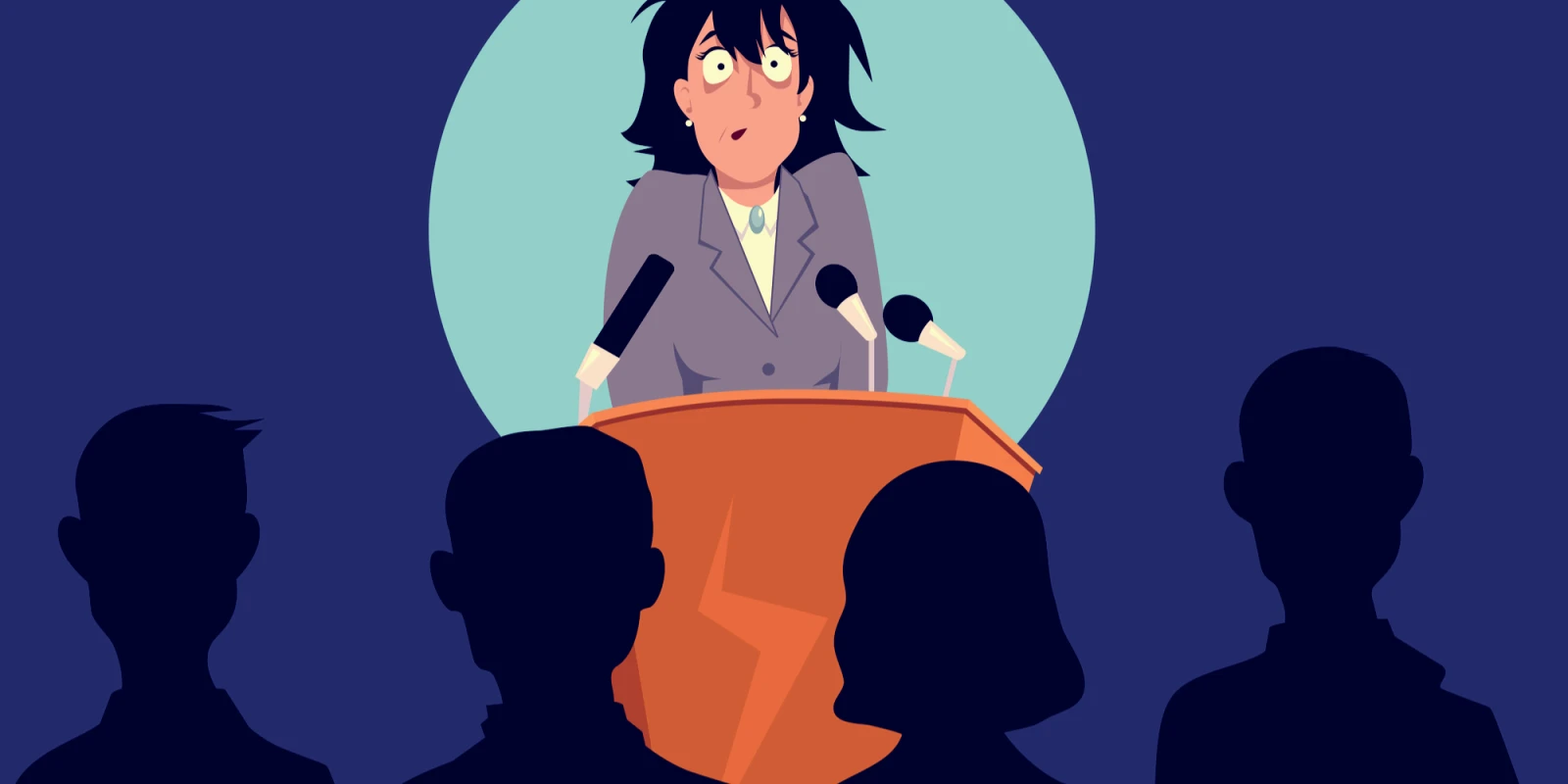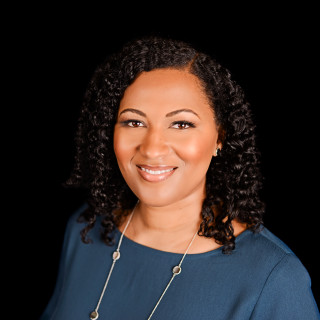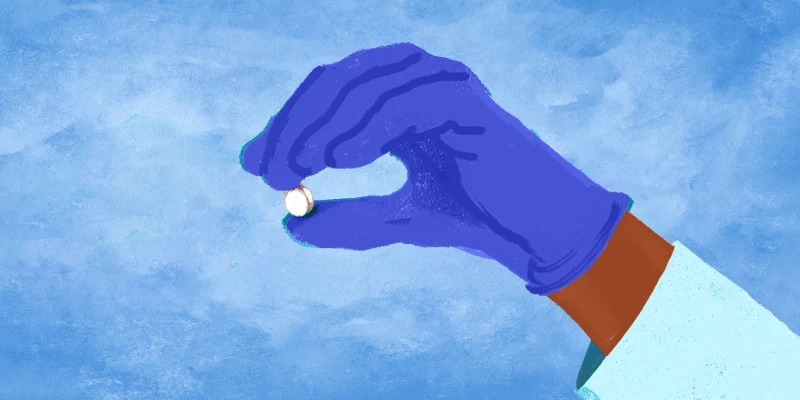 Physicians are expected to be leaders and capable of disseminating medical information to their patients and the public. Along with this expectation comes public speaking such as lectures to medical students and residents, grand rounds, and community education events. Some physicians have been able to expand their careers by becoming professional public speakers. I would like to be able to do this as well. However, I am one of the seven percent of American adults with social anxiety disorder and it has stalled my progress. I finally decided that this year I would no longer allow my social anxiety to stifle me.
Physicians are expected to be leaders and capable of disseminating medical information to their patients and the public. Along with this expectation comes public speaking such as lectures to medical students and residents, grand rounds, and community education events. Some physicians have been able to expand their careers by becoming professional public speakers. I would like to be able to do this as well. However, I am one of the seven percent of American adults with social anxiety disorder and it has stalled my progress. I finally decided that this year I would no longer allow my social anxiety to stifle me.
Here’s an abridged version of the DSM-5 criteria for social anxiety disorder for those who aren’t familiar with the symptoms: a persistent fear of social or performance situations in which the person is exposed to unfamiliar people or to possible scrutiny by others and fears that he or she will act in a way or show anxiety symptoms that will be embarrassing and humiliating; exposure to the feared situation almost invariably provokes anxiety, which may take the form of a panic attack; the person recognizes that this fear is unreasonable or excessive; the feared situations are avoided or else are endured with intense anxiety and distress; the avoidance, anxious anticipation, or distress in the feared social or performance situations interferes significantly with the person's normal routine, occupational or academic functioning, or social activities or relationships, or there is marked distress about having the phobia.
One of my feared situations is public speaking or glossophobia. I recall having stage fright during adolescence when I forgot the words of part of my solo verse during a youth choir performance at church. I remember hearing my voice say “I forgot the words” echoing into the microphone, then hearing people snickering. My fear of singing, dancing, and speaking in public has continued since then. I don’t like large crowds and prefer communication by text or email instead of by phone (that might also be part of my introvert nature.) I often turn down or cancel social engagements, even if they could lead to friendships or networking opportunities.
I have given lectures to medical students, nurses, and therapists; spoken at community events, and given a grand rounds – because I had to. Every time, I was petrified. I worry leading up to the event, sweat and have upset stomach before, and my voice shakes during. I have stumbled over words or lost my place. I do an adequate job because I am presenting quality information, but my presentation has not been quality. I have turned down some local speaking opportunities and TV and radio appearances because I feared I would freeze.
I love my job but have practiced at the same facility since residency, and seeing many of the same patients, for over a decade. I now have a desire to reach patients outside of my office and disseminate mental health information and reduce stigma on a broader scale. I have been doing this with writing but can reach a different audience with public speaking. I was invited to speak at my first national conference (also the first time I would receive an honorarium for speaking), and I felt it was an opportunity I couldn’t turn down. I felt more pressure and anxiety than usual because of the setting and compensation.
This was a very recent experience and I was involved in two sessions of the conference. The first, I was interviewed by another physician to discuss how and why I chose psychiatry, what I’m currently doing outside of medicine, and what I see myself doing in the future. I was less nervous about this because I was not the only one being interviewed and I didn’t have to prepare any comments or practice – just a conversation with a colleague (in front of hundreds of people.) The next session was a case presentation, one of four cases presented. I practiced with and without my PowerPoint and used an app to record myself, listen to myself, and get scored on different aspects of public speaking. I knew my material well but still worried about my ability to present it effectively. Leading up to it, I didn’t sleep well, had a headache, and was sweating. I was still nervous when I got on stage, but the anxiety decreased the more I spoke and saw that people were interested in what I had to say. The audience enjoyed the case I presented, felt they learned valuable information, and didn’t think I appeared nervous. I felt less nervous during the presentation than I expected I would, but I could’ve used the stage more and made eye contact with more of the audience. I felt relieved when it was over and proud of myself that I didn’t pass up this opportunity. This experience made me feel more comfortable with two upcoming speaking engagements I have this year and open to speaking more often.
For some people, social anxiety is debilitating, and they benefit from therapy and/or medication. Although my symptoms have hindered me, I am thankful that I am able to reduce my symptoms with practice and exposure to the feared situations. There is still room for improvement, but my goal is to push past my anxiety until I feel confident as a public speaker. I’m sure I’m not the only one whose anxiety symptoms have impacted their career, so I hope I might have inspired others to get out their comfort zone, tolerate some discomfort, and challenge their fears.
If you are trying to become a better public speaker, Toastmasters is a non-profit educational organization that teaches public speaking and leadership skills through a worldwide network of clubs. There are also multiple podcasts about public speaking, I found this one helpful because it specifically discussed speaking anxiety. If you're more of a workbook person, check out this self-help book. You can also check out apps like Orai or Speeko, which allow you to practice speaking skills and record yourself and offers feedback. If you think you need more than an app, you can look up National Social Anxiety Centers, which has regional clinic with certified cognitive specialists specializing in social anxiety.
Danielle J. Johnson, MD, FAPA is a board-certified psychiatrist. Her interests include women's mental health and minority mental health. Dr. Johnson is co-author of the book "The Chronicles of Women in White Coats." Follow @drdanij on Instagram and Twitter. She is a 2018–2019 Doximity Author.
Image by Aleutie / Shutterstock




